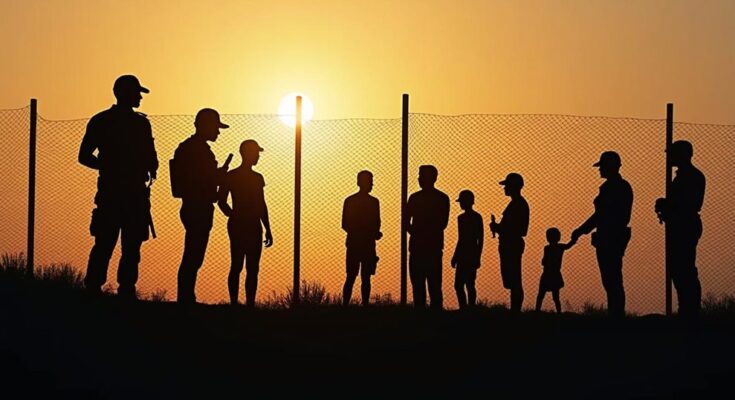The Dominican Republic has initiated a plan to expel 10,000 undocumented Haitians weekly, citing the need to manage excessive migration amid Haiti’s ongoing violence and instability. The government plans to enhance surveillance and dismantle trafficking networks, while expressing dissatisfaction with international efforts in Haiti. This follows a history of stringent immigration policies under President Abinader, including the previous expulsion of over 250,000 Haitians in 2023 and the construction of a border wall.
The government of the Dominican Republic announced a significant immigration enforcement initiative on October 2, 2024, intending to expel 10,000 undocumented Haitian migrants weekly. This plan is framed as a response to the challenges posed by the influx of migrants from Haiti, which has been beset by violence and instability due to criminal gang activities. Presidential spokesman Homero Figueroa emphasized the operation’s goal is to curb what he termed “excessive migrant populations” in Dominican communities, ensuring that the process adheres to strict human rights protocols. The urgency of this initiative stems from the perceived inadequacy of international efforts to stabilize Haiti. Dominican President Luis Abinader criticized the international community’s slow response, indicating that his government felt compelled to take matters into its own hands. Since taking office in 2020, President Abinader has fostered a stringent migration policy, evidenced by a border wall construction and previously deporting over 250,000 Haitians in 2023 alone. The current plan aims to more than double recent deportations, even as humanitarian conditions in Haiti deteriorate, with reports of over 3,600 violent deaths related to gangs and more than 700,000 displaced individuals. To assist with the enforcement of this policy, the Dominican authorities have pledged to enhance surveillance utilizing drones and cameras along the border, and to dismantle human trafficking networks leading from Haiti. The Dominican Republic, which shares the island of Hispaniola with Haiti, has historically grappled with complex relations, often marked by economic disparities and social tensions against Haitian migrants seeking opportunities in the more prosperous Dominican territory, known for its vibrant tourism sector and growing economy.
The Dominican Republic has long faced challenges regarding immigration from Haiti, particularly in light of Haiti’s struggles with poverty and violence. The catastrophic earthquake in 2010 significantly contributed to the destabilization of Haiti’s economy, leading to an increase in migration as Haitians sought refuge and opportunities in neighboring countries. The Dominican Republic has implemented various measures to manage this influx, including the construction of a substantial border wall and the establishment of stringent immigration policies under President Abinader. The announcement of the plan to expel 10,000 Haitians weekly reflects ongoing tensions and the country’s commitment to controlling migration at a time when many Haitians are fleeing dire conditions exacerbated by gang violence and a lack of effective governance in Haiti. The humanitarian implications of such policies are significant, as they occur alongside a worsening crisis in Haiti which has led to widespread displacement and increased violence.
The Dominican Republic’s recent announcement to expel 10,000 undocumented Haitians on a weekly basis marks a notable escalation in its immigration enforcement strategy. This initiative is primarily a response to the growing migrant population and a reflection of the Dominican government’s frustration with the international community’s slow response to the crisis in Haiti. Amid a backdrop of increasing gang violence and instability in Haiti that has forced many to flee, this decision may further strain relations between the two countries and raise important questions regarding human rights and humanitarian conditions for those being expelled. The situation remains fluid, as the Dominican Republic grapples with its historical complexities in managing migration while addressing its national security concerns.
Original Source: www.jamaicaobserver.com




